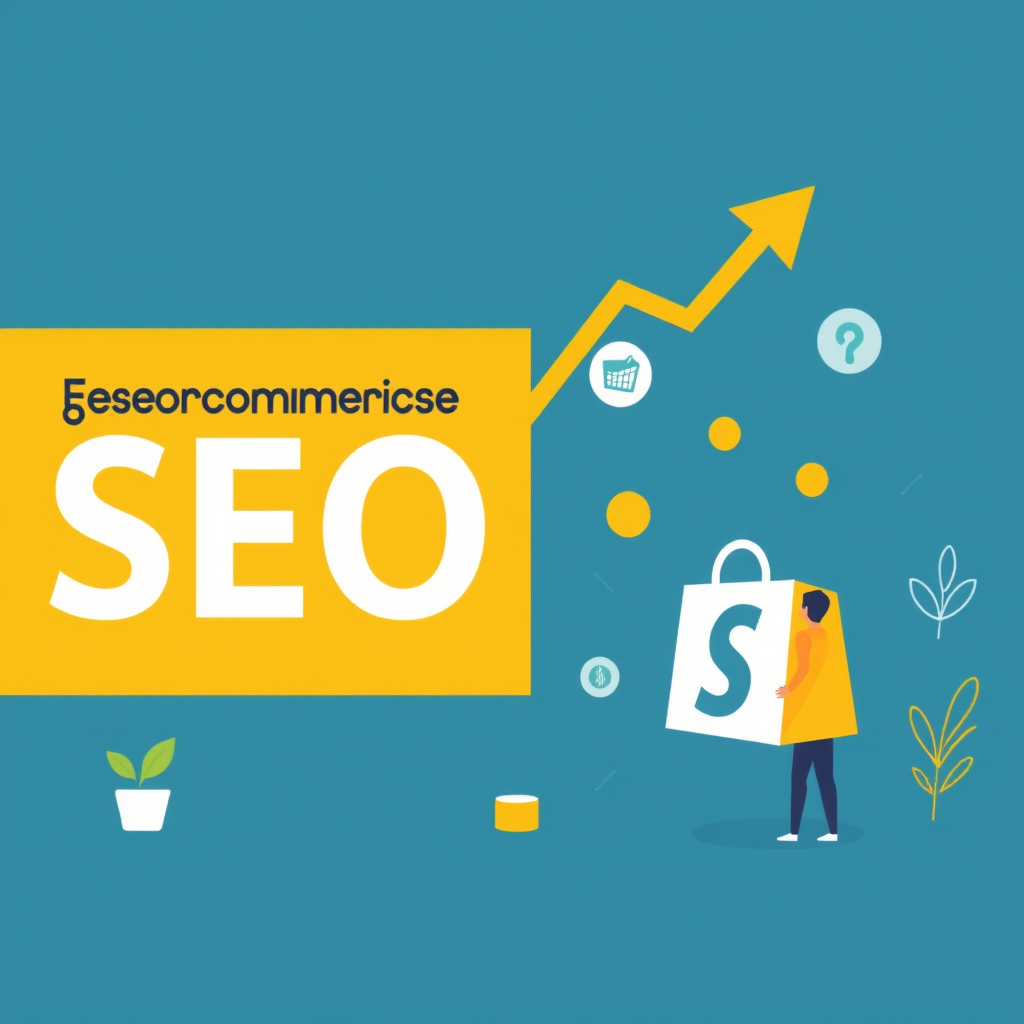Ecommerce SEO: Rank with Shopify & Our Guide
Ready to boost your online store's visibility and drive more traffic? This guide dives deep into ecommerce SEO, specifically tailored for Shopify. We'll equip you with actionable strategies to optimize your Shopify store and rank higher in search engine results, attracting more customers and growing your business. With the right approach, you can leverage the power of ecommerce SEO to transform your online presence.
Understanding Ecommerce SEO

Ecommerce SEO differs from traditional SEO because it focuses on optimizing product pages, category pages, and the overall structure of an online store to improve its visibility in search engine results pages (SERPs). Think about it: users searching for "red running shoes" are looking for a product, not just information. Therefore, your SEO efforts should center around showcasing your products effectively.
Why is Ecommerce SEO Important for Shopify Stores?
- Increased Visibility: Higher rankings mean more eyes on your products.
- Targeted Traffic: Attract customers actively searching for what you offer.
- Cost-Effective Marketing: Organic traffic is essentially "free" traffic.
- Brand Authority: Ranking well builds trust and credibility.
- Higher Conversion Rates: Users finding you organically are often further along in the buying process.
Shopify SEO: Optimizing Your Store for Success
Shopify provides a fantastic platform, but it's up to you to optimize it for search engines. Here's a breakdown of key areas to focus on:
Keyword Research for Ecommerce
Identifying the right keywords is crucial. Use tools like Google Keyword Planner, SEMrush, or Ahrefs to find relevant keywords with good search volume and low competition. Consider:
- Product Keywords: "Red running shoes," "organic cotton t-shirt."
- Category Keywords: "Women's Clothing," "Electronics."
- Long-Tail Keywords: "Best running shoes for marathon training," "eco-friendly baby clothes online."
On-Page Optimization: The Foundation of Ecommerce SEO
- Title Tags & Meta Descriptions: Craft compelling titles and descriptions that include your primary keyword and entice clicks. Keep them concise and relevant.
- Product Descriptions: Write unique and detailed descriptions that showcase the benefits of your products. Avoid manufacturer descriptions and focus on what makes your product special. Incorporate relevant keywords naturally.
- Image Optimization: Use descriptive file names and alt text for all images. Compress images to improve page speed.
- URL Structure: Create clean and keyword-rich URLs (e.g.,
/red-running-shoesinstead of/product?id=123). - Header Tags (H1, H2, H3): Use header tags to structure your content and highlight important keywords. The H1 tag should be your main product or category keyword.
Technical SEO for Shopify
Technical SEO ensures search engines can crawl and index your site effectively.
- Site Speed: Optimize your site for speed. Use Google's PageSpeed Insights to identify areas for improvement. Consider using a CDN and optimizing images.
- Mobile-Friendliness: Ensure your site is responsive and provides a great experience on mobile devices.
- Sitemap Submission: Submit your sitemap to Google Search Console to help Google crawl your site.
- Robots.txt: Use a robots.txt file to control which pages search engines can crawl.
- Structured Data Markup (Schema): Implement schema markup to provide search engines with more information about your products (e.g., price, availability, reviews).
Content Marketing for Ecommerce
While product pages are essential, content marketing can attract a wider audience and establish your brand as an authority.
- Blog Posts: Create blog posts that address your customers' pain points and provide valuable information related to your products.
- Guides & Tutorials: Develop comprehensive guides and tutorials that showcase your expertise and answer common questions.
- Case Studies: Share success stories from your customers.
Link Building for Ecommerce
Earning high-quality backlinks from other websites is a crucial ranking factor.
- Guest Blogging: Write guest posts for other relevant websites in your niche.
- Broken Link Building: Find broken links on other websites and offer your content as a replacement.
- Resource Pages: Get your website listed on resource pages that are relevant to your industry.
Analytics and Monitoring
Track your progress and make adjustments as needed. Use Google Analytics and Google Search Console to monitor your organic traffic, keyword rankings, and other important metrics.
Conclusion: Mastering Ecommerce SEO for Shopify
Ecommerce SEO is an ongoing process that requires patience and dedication. By implementing the strategies outlined in this guide, you can significantly improve your Shopify store's visibility in search results and attract more customers. Remember to focus on providing a great user experience, creating high-quality content, and building a strong online presence. Start today and watch your online store thrive!